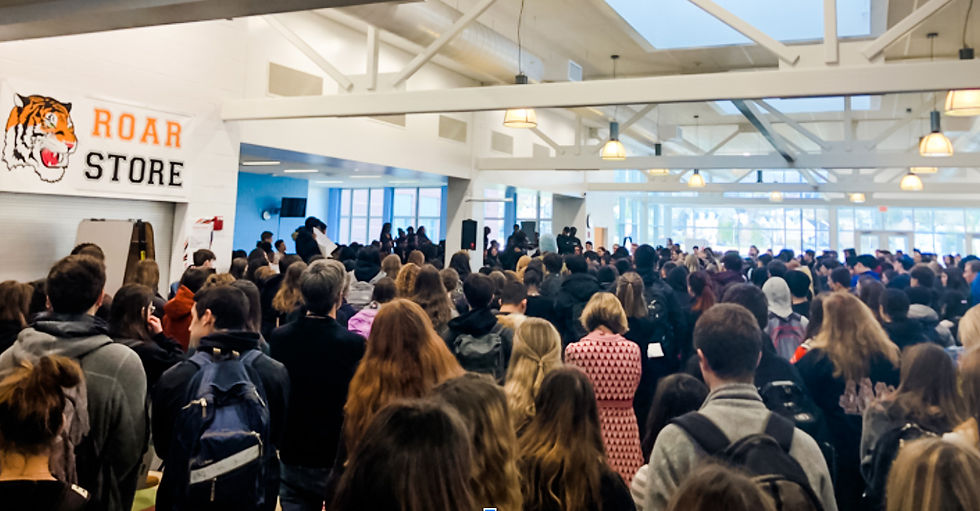4 Ways to Take Action and Empower the Voices of Our Students of Color
- Henry Turner

- Jun 29, 2020
- 3 min read
Updated: Mar 21, 2021
Guest Post by Henry Turner
As you look internally, here are a few antiracist actions educators can take when the school year starts as well as examples of steps that we have made at Newton North High School to empower the voice of our students of color.
Tell them that you believe that Black Lives Matter
Students need to know that their teachers and administrators detest racism. They want to know that educators are upset when events like the recent murders occur or when racist events occur in your school. Even when we are afraid we’ll get it wrong, silence about these events will be viewed by our students as “you don’t care”.


Encourage their activism
Many teenagers, particularly students of color, are taking to the streets and social media this summer with calls for social justice and an end to racism. How cool would it be for them to hear the support from their school leaders, counselors, and teachers? Instead of assigning students, the age-old “write a letter to the mayor or superintendent” enable them to organize for change in your school or classroom. What do they want to fix? What steps can they take to fix it? Encouraging their activism formulates trust with you and with their school. Furthermore, this kind of work has the highest potential for our most disconnected students.

Focus on their Assets
Student activism has increased over the last few months, particularly around the Black Lives Matter movement. The skills that these activist students developed, such as advocacy and organization as well as learning about the inequities in our country, are assets that our students will bring to school next Fall. Yet, far too many educators and parents are worried about “learning loss” during the crisis distance learning created by COVID-19. I recently heard Dr. Ginwright speak about the need to refocus on the assets that our students will bring to school in the Fall to increase their engagement. This refocus on student assets could be even more true for our students of color. Remember that COVID-19 is disproportionately impacting people of color throughout the country. Educators will further disconnect students of color from school if they focus on students’ “learning loss” and not their assets. Not only will this lens help reduce the impact of the anxiety and trauma that our students will bring with them to school, but it will help us to strengthen their voice right away within their schools.

Build trust by helping them create change in their domain
Classroom teachers, counselors, and administrators all carry levels of power and influence. When educators empower students to make changes to their domains--classroom, groups, or the entire school--students become energized to create more change. This will also help educators amplify the voices of students of color when they often find their voices marginalized. Changing based on the demands of students can be humbling, and at the same time, we are boosting their confidence and trust that we have their back.

These initial actions will help educators to begin the process of becoming an anti-racist educator as you reflect internally. Taking these kinds of actions will demonstrate to students that you are serious about antiracism. However, they will also prevent you from moving too quickly without deep self-reflection. If we take action too fast, we may reinforce an inequitable system that already exists in our schools.



Comments